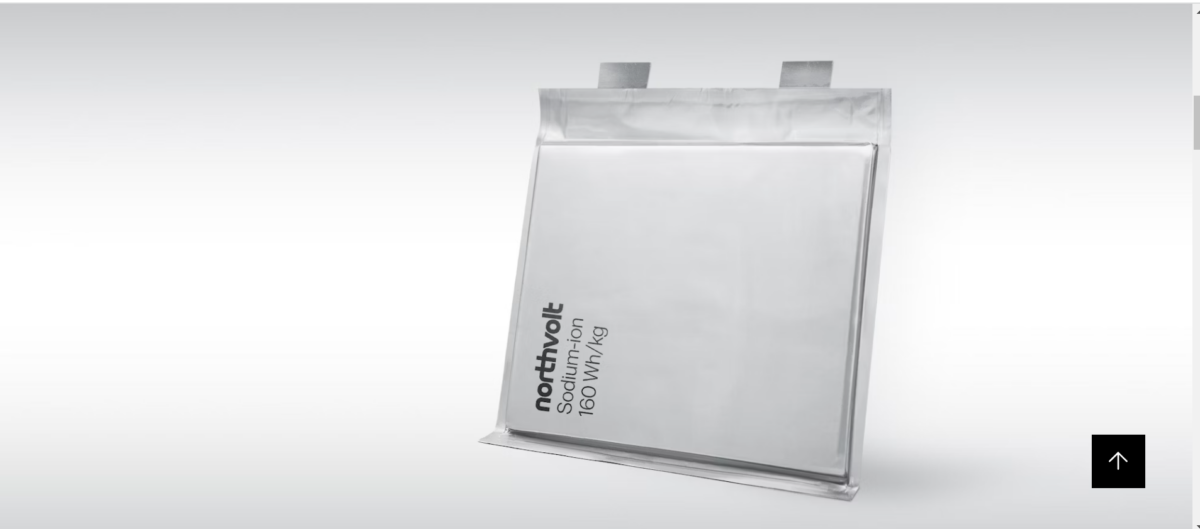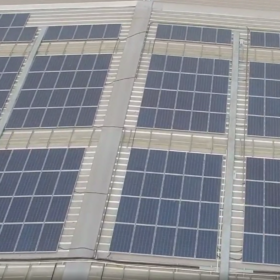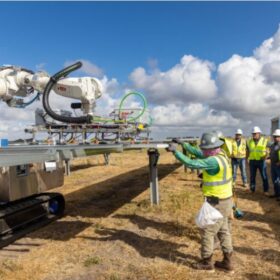From pv magazine Global
Northvolt, Europe’s battery manufacturing torchbearer, has announced the development of its first-generation sodium-ion battery cells. They are designed to provide the foundation for the company’s next-generation energy storage solutions, with subsequent generations to deliver higher energy density, opening opportunities to enable cost-efficient electric mobility solutions.
Its sodium-ion technology has been validated at more than 160 Wh/kg at its R&D and industrialization campus, Northvolt Labs, in Västerås, Sweden. This level of performance makes the technology competitive with today’s dominant energy storage chemistry – lithium iron phosphate (LFP) batteries.
“Thanks to the global abundance of ingoing materials as well as the robustness and sustainability of the sodium-ion technology, Northvolt sees sodium-ion technology as a key part of the company’s product portfolio in the long term,” Wilhelm Löwenhielm, Northvolt senior director of business development ESS, told pv magazine. “With its first-generation sodium-ion product, Northvolt will bring to market a solution at scale that is competitive with LFP solutions. Over time, the technology is expected to surpass LFP significantly in terms of cost-competitiveness.”
According to Löwenhielm, Northvolt aims to address the energy storage market with a complete plug & play battery solution to allow for fast market entry and scale-up.
“Key activities for bringing this particular technology to market is scaling the supply chain for battery grade materials, which Northvolt is currently doing together with key partners,” he said.
So far, the company has revealed few details about the technology’s performance.
“We’ve also demonstrated the cell’s robustness and cycle life – something that’s key for energy storage systems,” the company said on its website, without providing any hard figures.
However, Northvolt has said that its sodium-ion cell is based on a hard carbon anode and a Prussian White-based cathode, which makes it similar to the first generation of sodium-ion cells unveiled by Chinese battery industry heavyweight CATL in 2021.
“At the surface level, it should be the same technology as announced by CATL in 2021, but the Chinese manufacturer is also pursuing layered oxide cathodes as well – both with similar performances (160 Wh/kg),” Max Reid, principal electric vehicle and battery analyst at Wood Mackenzie, told pv magazine. “In the early days of sodium-ion, it makes sense for a company like CATL to keep developing several technologies and attempt to overcome the challenges of each to hedge its bets.”
Northvolt, on the other hand, has adhered to nickel-manganese-cobalt (NMC) battery chemistry, which is favored by electric-vehicle customers. The company’s ESS platform is based on the same chemistry, which is seen as less sustainable than LFP due to cobalt and nickel content.
The Swedish startup, which has secured the backing of big investors such as Volkswagen, BlackRock, and Goldman Sachs since its establishment in 2016, has however always claimed that it is building the world’s greenest lithium-ion batteries with a minimal CO2 footprint.
The company has managed to reduce its lithium-ion cell carbon footprint to 33 kg CO2/kWh — a two-thirds reduction compared to an industry reference. Its goal, however, is to establish 150 GWh of annual cell production by 2030 at 10 kg CO2/kWh with 50% of material for its lithium-ion cells coming from recycling.
In December 2021, Northvolt bacame the first manufacturer to produce battery cells fully designed, developed and assembled by a homegrown European battery company. Those first cells rolled off its manufacturing lines at Northvolt Ett – its first gigafactory, in northern Sweden, which has an installed capacity of 16 GWh. In the meantime, the company has revealed plans for three more plants in Germany, Canada and Sweden.
Northvolt has also been engaged in development of energy-dense lithium-metal battery technology for aviation and high-performance vehicles at its subsidiary Cuberg based in San Leandro, California. The Stanford University spinoff has developed a 20 Ah commercial-format lithium metal pouch cell with an energy density of 405 Wh/kg and integrated those cells into an aviation-specific battery module offering gravimetric and volumetric energy density of 280 Wh/kg and 320 Wh/L respectively.
Around a year ago, Northvolt announced an investment in Altris, a Swedish tech company that has developed a proprietary technology to produce Fennac (Prussian White), a key component in sodium-ion batteries that consists of sodium, iron carbon and nitrogen.
In October, Altris announced a milestone in its technology development, presenting a 160 Wh/kg sodium-ion battery cell.
“Now, we have our eyes set on achieving 200 Wh/kg and beyond, while keeping our chemistry pure and sustainable”, said Björn Mårlid, CEO of Altris.
Northvolt, which developed its sodium-ion cells in partnership with Altris, said that its focus is on the industrialization of this technology and developing solutions for its integration into energy storage solutions for global deployment.
“The low cost and safety at high temperatures make the technology especially attractive for energy storage solutions in upcoming markets including India, the Middle East and Africa,” the company said in a press release.
This content is protected by copyright and may not be reused. If you want to cooperate with us and would like to reuse some of our content, please contact: editors@pv-magazine.com.









1 comment
By submitting this form you agree to pv magazine using your data for the purposes of publishing your comment.
Your personal data will only be disclosed or otherwise transmitted to third parties for the purposes of spam filtering or if this is necessary for technical maintenance of the website. Any other transfer to third parties will not take place unless this is justified on the basis of applicable data protection regulations or if pv magazine is legally obliged to do so.
You may revoke this consent at any time with effect for the future, in which case your personal data will be deleted immediately. Otherwise, your data will be deleted if pv magazine has processed your request or the purpose of data storage is fulfilled.
Further information on data privacy can be found in our Data Protection Policy.